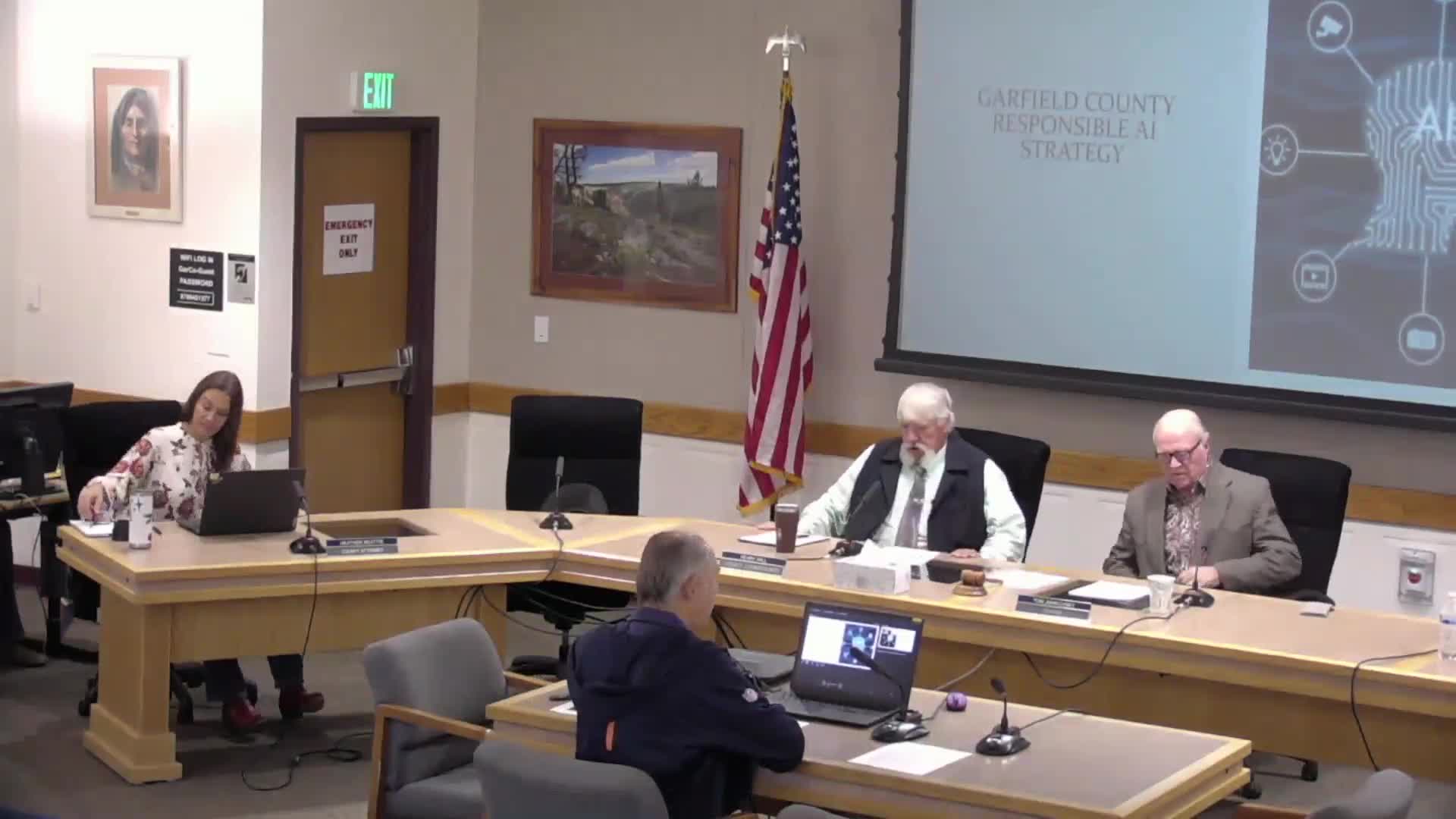Garfield County reviews draft AI use policy, directs staff to place it on consent agenda
Get AI-powered insights, summaries, and transcripts
Subscribe
Summary
County staff presented a draft artificial intelligence use policy and implementation plan, including guardrails, training, pilot projects and vendor options; commissioners agreed to return the policy on the consent agenda for formal adoption.
Garfield County commissioners heard a staff presentation on a proposed artificial intelligence (AI) use policy and a phased implementation plan and directed staff to place the policy on the consent agenda for future board adoption.
The policy, presented by Gary (staff member) and the county’s AI work group, lays out six high-level policy points and a set of guidelines intended to create “guardrails” for county use of AI, protect privacy and sensitive data, require human review of AI outputs and provide incident-reporting channels. Gary said the county will begin with policy and training, move to small-scale pilot projects vetted through IT, then expand successful efforts.
Why it matters: County staff told the commission that AI tools are already embedded in commonly used software and that departments such as the county attorney’s office and assessor’s office are experimenting with AI for legal research and data analysis. Commissioners and staff framed the policy as an attempt to reap AI’s efficiency benefits while managing risks including bias, “hallucinations” (incorrect outputs), data-security vulnerabilities, and workforce impacts.
Key details: The draft calls for departments to use only approved tools, to protect private and confidential data, to disclose when AI materially generated content, to double-check AI outputs, and to route purchases or adoption of new AI tools through IT and department heads for security compliance. The draft also includes a short “do’s and don’ts” quick reference for employees (for example, “don’t enter sensitive data” and “when in doubt, stop and ask IT”).
During the work session, Roy Berkey (local IT specialist) demonstrated Microsoft 365 Copilot embedded in products such as Word and PowerPoint, and showed how the tool can summarize documents, generate prompts and be set to search only county data in the county’s Microsoft 365 tenant rather than the public web. Staff also demonstrated a vendor product called GovAI and reported vendor pricing and examples: staff said GovAI offered a county-wide pilot for about $15,000 and claimed an example vehicle-upfitting cost estimate of roughly $120,000 per vehicle (derived by the vendor from typical upfit scenarios) and a roughly $800,000 startup figure for an upfitting facility and tools; staff emphasized such vendor numbers are dependent on available data and scope and may require verification.
Commissioner comments: Commissioners raised national and geopolitical concerns about AI development, workplace impacts and the need for training. Commissioner Sampson said Americans should be “abreast of this” and cautioned about foreign-state control of AI development; another commissioner emphasized that many county software tools already include AI elements and the county needs policy guardrails. Several commissioners asked about cost and training; staff said training will be part of the rollout and that outside experts or data scientists may be engaged as needed.
Outcome and next steps: The board agreed to have staff bring the policy back on the consent agenda for formal adoption at a future meeting. Staff said the policy will be treated as a living document, with periodic revisions as technology and needs change, and that the AI work group and IT will shepherd pilots, vet vendor contracts for safety language, and develop employee training and sharing practices.
Ending: Staff said they will begin the phased work—policy, pilots, and training—and report back to the commission, with a plan to start cautiously and expand where the tools prove useful.
